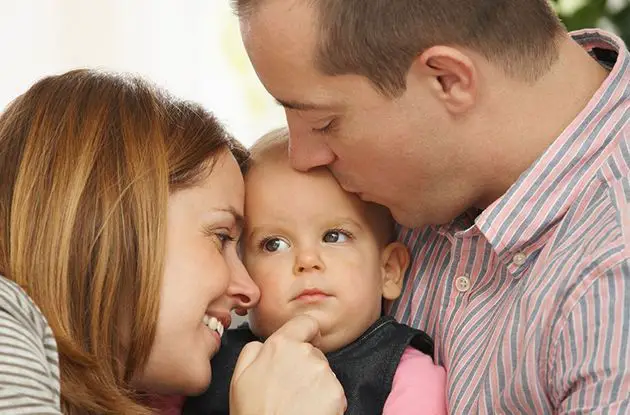A New York father of three emphasizes the power of optimism in overcoming his son’s disabilities and the importance of focusing on your child’s abilities rather than disabilities.
Parents put up with many kinds of petty annoyance, starting with the fact that our offspring insist on acting like kids. But when you are the mother or father of a child with obvious challenges you are likely to encounter a very distinct irritant:
Any positive emotion you express about your offspring may be admired as an act of bravery.
The first of our three children was born with a chromosomal anomaly which we were told would severely limit his physical and intellectual development. We nonetheless found him lovable and charming from the start, even in those scary early days in the neonatal intensive care unit. This was where the social worker noted on a chart: “Parents in denial re: child’s prognosis.” We were to be reminded of this idiotic notation—frequently. Because over the next years we found that some people responded to any expression of pride or relief or enjoyment with admiring disbelief: “You guys are amazing!” was the default reaction, and my wife Patti and I often remarked on its resemblance to that social worker’s phrase: “You guys are in denial.” 
Today our 30-year-old son Tommy is a remarkably loving and interesting person. He has not overcome his disabilities to achieve normalcy, whatever that may mean, but he is bright and connected and thoroughly, thrillingly alive in every way. Our family has always felt as though somehow our optimism paid off. Now we are learning that this may be true in a more literal way than we could have known until recently.
We are living at a time when a new field of study is emerging in academia, and for the first time many topics once relegated to self-help books are being acknowledged as worth serious scientific study. Optimism is one of them: In the mid-20th century, The Power of Positive Thinking was the title of a best seller by Dr. Norman Vincent Peale. Today it is a scholarly topic that we are just beginning to explore.
Laura Kubzansky, Ph.D., M.P.H., is a professor of social and behavioral sciences at the Harvard School of Public Health with a particular interest in studying the relationship between psychological states and health outcomes. She and her colleagues report findings that suggest a strong link between optimism and improved health, in particular a truly dramatic decline in risk of heart attacks. Related research by others is also reaching similar conclusions.
This is not the only example of cutting-edge science confirming what might be termed “folk wisdom.” Of course, no one is ready to claim that they have disproved the notion that “wishing doesn’t make it so.” But researchers like Dr. Kubzansky may soon help us understand exactly why and how it is that in some contexts—and parenting a child with challenges may be one of them—focusing on the positive can indeed influence the way things turn out.
If you’re the parent of a child with significant delays who just endured another parent’s boasting about their little prodigy, or if you learned of yet another kid’s birthday party your special needs child was not invited to, all this is going to be irritating, or worse. If it’s one of those days, you would do well to stop reading this and pick up Barbara Ehrenreich’s withering critique of optimism, Bright Sided. Ehrenreich began writing the book as a response to what she experienced as the absurd and unrealistic expectation that she remain relentlessly upbeat during debilitating treatment for breast cancer. She has a point: No sane person is happy all the time, no engaged parent lives a worry-free life, and those whose child is more complex than most simply have that much more to keep them up at night.
If your son or daughter is delayed or dis-regulated and it never affects your positive outlook on life, I salute you.
It seems safe to say that being a parent is a known risk factor for sleepless nights, and that when disability is involved it only gets more difficult to close your eyes at night without dwelling on the risks and uncertainties that lie ahead.
If we are now learning more about the power of optimism, we are also living through an age of revelations about what is possible for children who were once thought to have limited options. Low expectations, it has often been remarked, can be a form of bigotry. As new insights and strategies of care show us how we can help young people progress despite significant challenges, that notion becomes increasingly relevant.
In fact, it’s enough to make you optimistic about the future. That, we are now learning, is a very good thing.



















